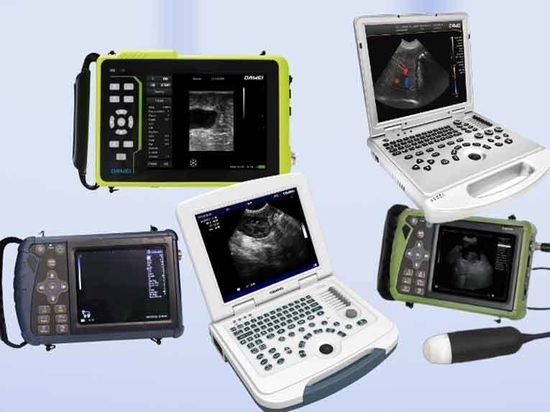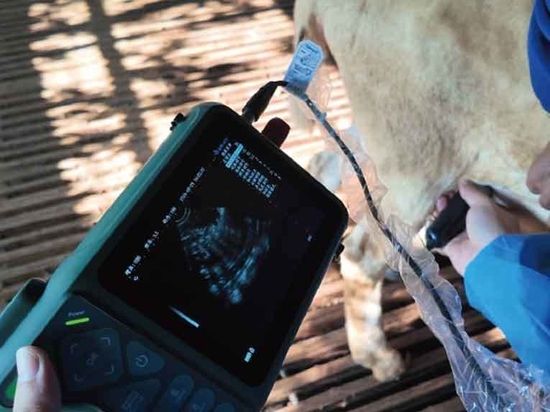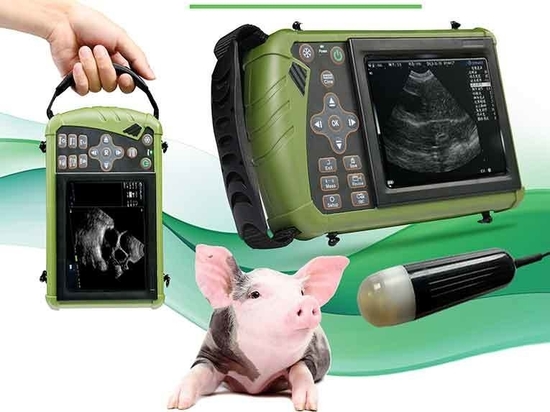
#Livestock
Advancements in Veterinary Care: The ECG Machine for Animals
In recent years, there has been a significant focus on improving the healthcare and well-being of our furry companions. Alongside the advancements in veterinary medicine, innovative technologies have emerged to aid in the diagnosis and treatment of various animal ailments.
In recent years, there has been a significant focus on improving the healthcare and well-being of our furry companions. Alongside the advancements in veterinary medicine, innovative technologies have emerged to aid in the diagnosis and treatment of various animal ailments. One such breakthrough is the development of electrocardiogram (ECG) machines designed specifically for animals. These specialized devices allow veterinarians to monitor and analyze the heart health of animals, leading to more accurate diagnoses and improved treatment outcomes. In this article, we explore the features, benefits, and potential applications of ECG machines for animals.
Understanding ECGs for Animals
Electrocardiography is a non-invasive medical procedure that measures the electrical activity of the heart. Traditionally, ECGs have been extensively used in human medicine to evaluate cardiac function and detect abnormalities. However, with the growing understanding of the importance of veterinary cardiology, experts have developed ECG machines tailored to the anatomical and physiological differences in animals.
Features of ECG Machines for Animals
ECG machines for animals come with a range of features specifically designed to meet the needs of veterinary professionals. These features may include:
Animal-specific lead placement: ECG machines for animals accommodate the varying anatomical differences between species. They offer different lead placements and sizes suitable for animals of different sizes and breeds, ensuring accurate measurements.
Durability and portability: Veterinary ECG machines are built to withstand the demands of a veterinary practice. They are portable, lightweight, and equipped with rugged casings, making them ideal for use in a clinic, during field visits, or in emergency situations.
Animal-friendly design: Animals may experience stress or anxiety during medical procedures. To minimize discomfort, ECG machines for animals often feature non-invasive techniques and animal-friendly designs. Some devices use wireless technology, reducing the need for restraining the animal during the procedure.
Benefits and Applications
The introduction of ECG machines for animals has revolutionized the field of veterinary cardiology and expanded the possibilities for accurate diagnosis and treatment. Here are some key benefits and applications:
Early detection of heart conditions: ECG machines enable veterinarians to detect early signs of cardiac abnormalities in animals. By identifying irregularities in heart rhythm or conduction, veterinarians can diagnose and treat conditions such as arrhythmias, heart disease, and myocardial infarction before they become critical.
Guiding anesthesia protocols: ECG monitoring during anesthesia is crucial for ensuring the safety of animals undergoing surgical procedures. ECG machines provide real-time information on the animal's cardiac function, allowing veterinarians to adjust anesthesia dosages and monitor the effects on the heart.
Monitoring chronic heart conditions: Animals with chronic heart conditions require long-term monitoring to assess the effectiveness of treatments. ECG machines provide a means for continuous monitoring, enabling veterinarians to track changes in heart health over time and make informed decisions about ongoing treatment plans.
Research and education: ECG machines designed for animals facilitate research and education in the field of veterinary cardiology. By studying ECG readings from various species, researchers can deepen their understanding of cardiac conditions and develop improved treatment approaches.
Conclusion
The advent of ECG machines for animals has marked a significant milestone in veterinary medicine. These specialized devices offer veterinarians a powerful tool to assess and monitor the heart health of their patients. By providing accurate diagnostic information and aiding in treatment decision-making, ECG machines for animals enhance the quality of care for our beloved pets and other animals. As technology continues to advance, we can expect further refinements in ECG machines, ultimately leading to better outcomes and improved well-being for our furry companions.





